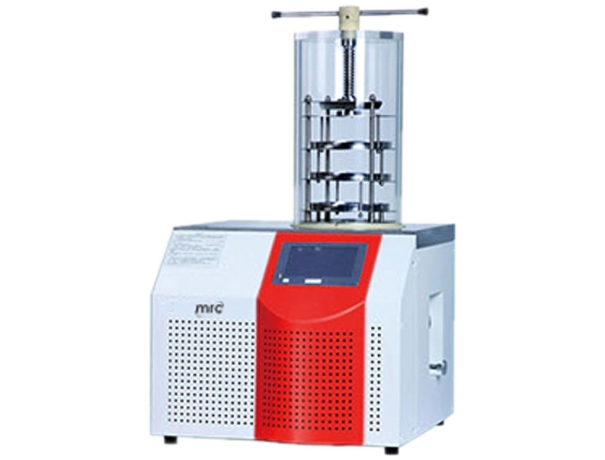Their significance extends across pharmaceuticals, food preservation, scientific research, and biotechnological processes. The ability to retain the integrity of substances while eliminating moisture makes laboratory freeze dryers a valuable asset in diverse applications.
Explanation of the freeze-drying process
At its core, freeze drying involves three main stages: freezing, primary drying, and secondary drying. Understanding this process is crucial to appreciating how laboratory freeze dryers operate and contribute to various industries.
Applications in Pharmaceuticals
A. Preservation of pharmaceutical products
The pharmaceutical industry relies on laboratory freeze dryers for preserving delicate drugs and vaccines. The ability to extend shelf life without compromising efficacy is a game-changer in drug development.
B. Impact on research and development
In laboratories, freeze dryers facilitate the preservation of biological samples, contributing to breakthroughs in medical research and development. The precision in preserving samples ensures the accuracy of experimental results.
C. Ensuring vaccine stability
The global demand for stable vaccines highlights the critical role laboratory freeze dryers play in preserving vaccine integrity. This application has become increasingly vital, especially during global health crises.
IV. Role in Food Industry
A. Freeze-drying in food preservation
The food industry utilizes Laboratory Lyophilizers to preserve the quality and flavor of various products. This method allows for long-term storage without the need for refrigeration.
B. Maintaining food quality
Freeze-dried foods retain their nutritional value and taste, making them popular among consumers. The process removes moisture without compromising the integrity of the food, resulting in lightweight, shelf-stable products.
C. Popular freeze-dried food products
From fruits and vegetables to instant coffee and astronaut ice cream, laboratory freeze dryers contribute to the production of an array of popular food items. Their impact on the food industry is undeniable.

V. Scientific Research and Laboratories
A. Facilitating biological sample preservation
Laboratories worldwide rely on laboratory lyophilizers to preserve biological samples for experimentation. The precision of the freeze-drying process ensures that samples remain unaltered for accurate analysis.
B. Advancements in laboratory techniques
The evolution of laboratory techniques is closely tied to technological advancements in equipment. Laboratory freeze dryers, with their ability to preserve samples without compromise, have played a significant role in pushing the boundaries of scientific research.
C. Supporting scientific breakthroughs
Many scientific breakthroughs owe their success to the stability and integrity of preserved samples. Laboratory freeze dryers contribute to the reliability of experiments and the validity of research findings.
Benefits for Chemical and Biotechnological Processes
A. Use in chemical synthesis
In chemical processes, laboratory lyophilizers aid in the synthesis of various compounds. The precise control over temperature and pressure ensures the production of high-quality chemical substances.
B. Contributions to biotechnological advancements
Biotechnological processes benefit from the stability provided by laboratory freeze dryers. Enzymes, cultures, and other biological materials maintain their activity and viability throughout the freeze-drying process.
C. Enhancing product quality and efficiency
Industries involved in chemical and biotechnological processes find that laboratory freeze dryers contribute to the enhancement of product quality and overall efficiency. The ability to control the drying process ensures consistent results.